Nurturing South Australia’s lifestyle as an economic asset
It’s time to rethink the economic value of our enviable lifestyle and cultural aspects argues Jason Dunstone from Square Holes.

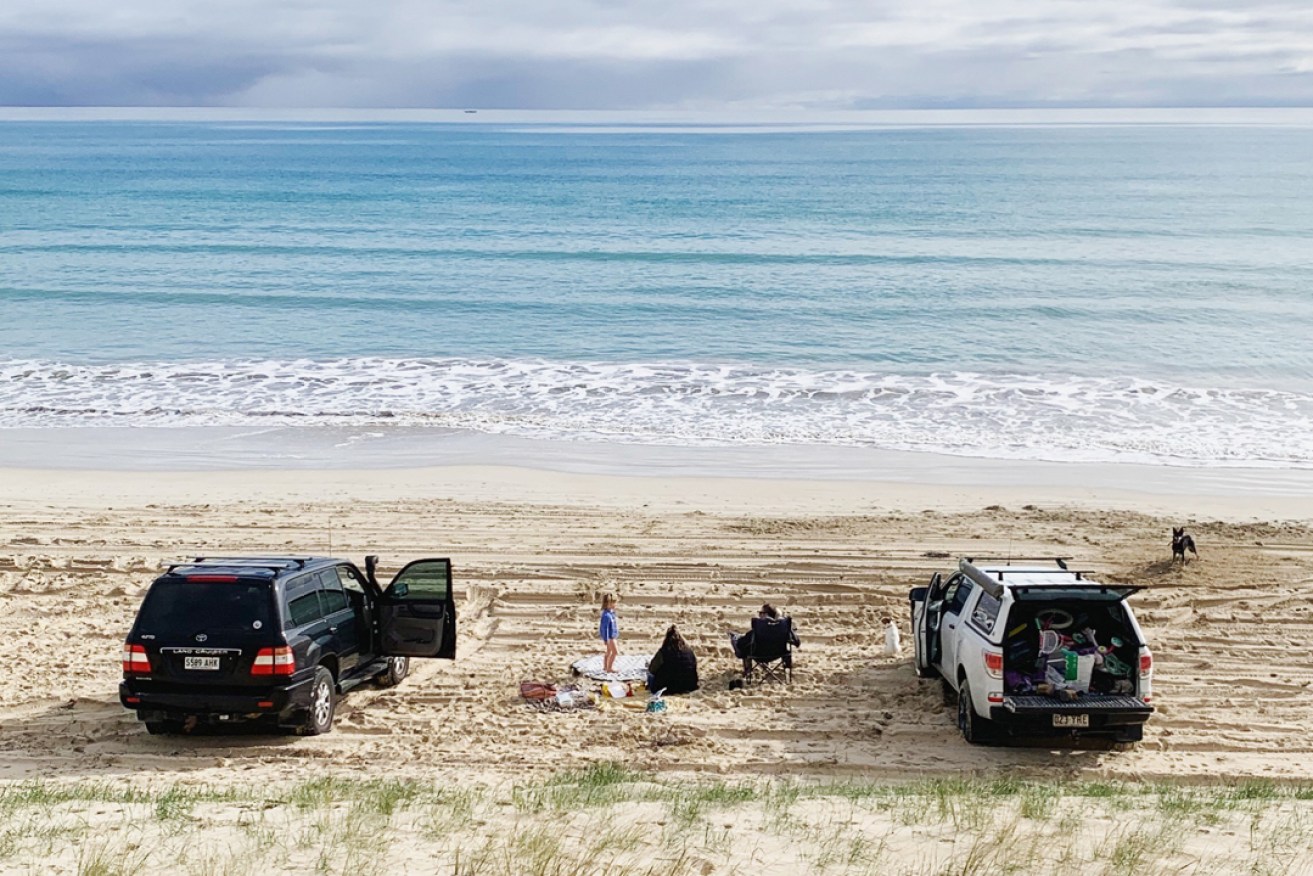
Long Beach near Robe. Picture: Nat Boulden
Back in March when COVID-19 restrictions came into effect in South Australia, Market Research company Square Holes doubled down on its Mind and Mood survey of what South Australians are thinking in order to chart the changes in confidence.
A major theme that has come from the research is how much South Australians value their lifestyles, being surrounded by beautiful beaches and with wonderful food and wine on every corner, and having an abundance of arts and culture and sport to watch.
This has become more evident as news of lockdowns and tough times in large cities flood media channels.
“There is a sense of psychological safety and happiness amongst South Australians,” Square Holes Managing Director Jason Dunstone says.
“Such a contrast to the horrible year generally across the world. In South Australia, many tourism operators are experiencing record booking levels, and restaurants have heightened demand for the limited places. With a positive local mood, the community is keen to get out and enjoy life.”
From the latest mind and mood research, most South Australians are succeeding in this pursuit of happiness, with 77 per cent indicating they are ‘happy’ living in SA.
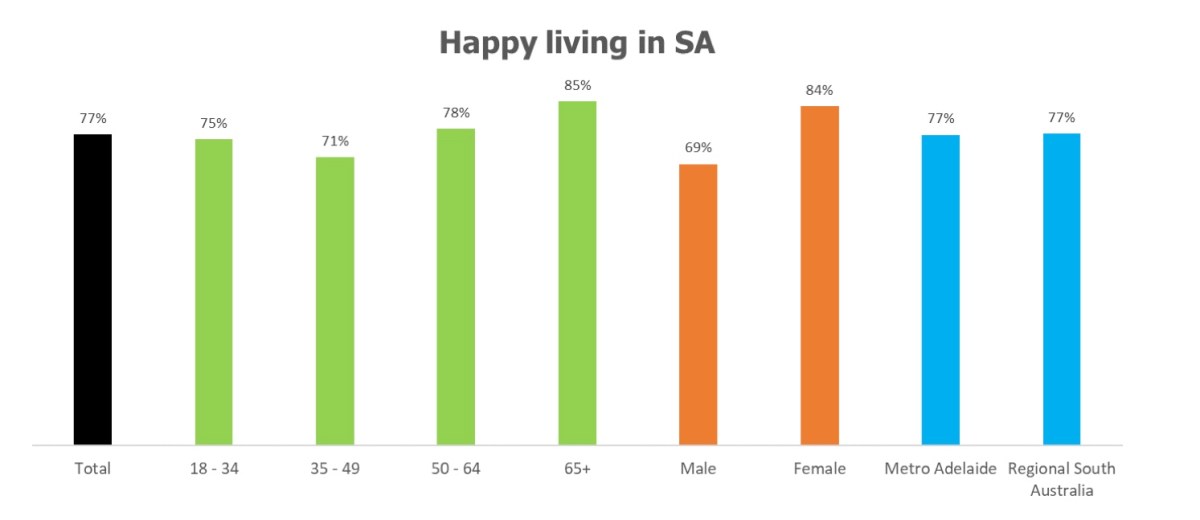
“There is a strong sense of pride at how well we conquered a challenging year and much to be happy about,” Dunstone said.
“Why would anyone wish to live anywhere else?”
Yet life is more complex and economic fragility lingers in South Australia. As reported in previous mind and mood pieces, South Australians rate culture and lifestyle aspects strong, yet view our economy and jobs as consistently floundering, either in reality or perception.
“Ratings of culture and lifestyle – food and drink, natural environment, and arts – tend to perform well, yet employment and economy poorly, even if there is an indication of improvement since 2015,” Dunstone said.
“Much of the challenge for South Australia is bridging this lifestyle and economic divide.
“An opportunity exists in closing the gap between our economic cultural benefits of South Australia.”
Dunstone argues that rather than viewing South Australia’s cultural aspects as needing to drive economic value to justify their existence, perhaps the answer is that the economic value of our arts, national parks, beaches is the value they contribute to making SA a great place to live, work and visit.
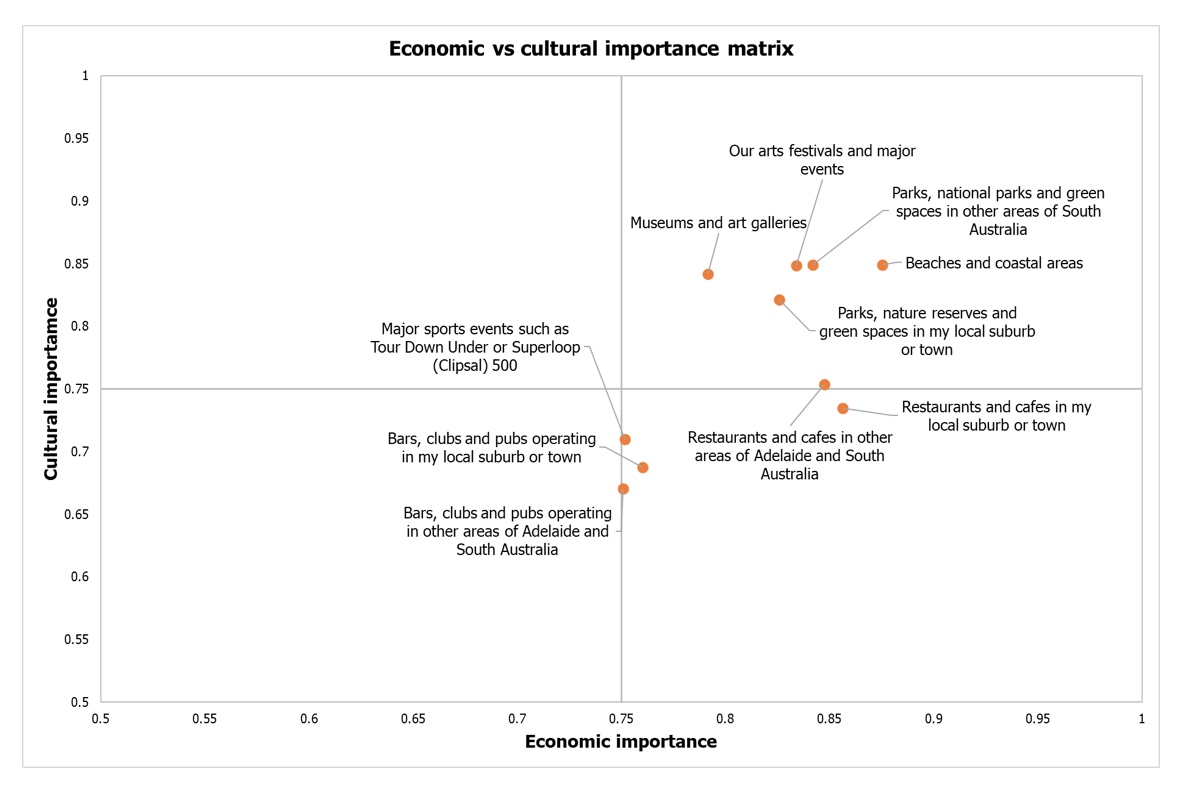
From Square Holes’ most recent mind and mood research, South Australians respect the economic value of our lifestyle and cultural assets.
Our arts festivals and major events; parks, national parks and green spaces; beaches and coastal areas; and museums and art galleries were all viewed as both highly economically and culturally important to South Australia.
“Importantly, all ten cultural aspects of South Australia were also acknowledged as highly economically Important to the state by 75 per cent of South Australians,” Dunstone said.
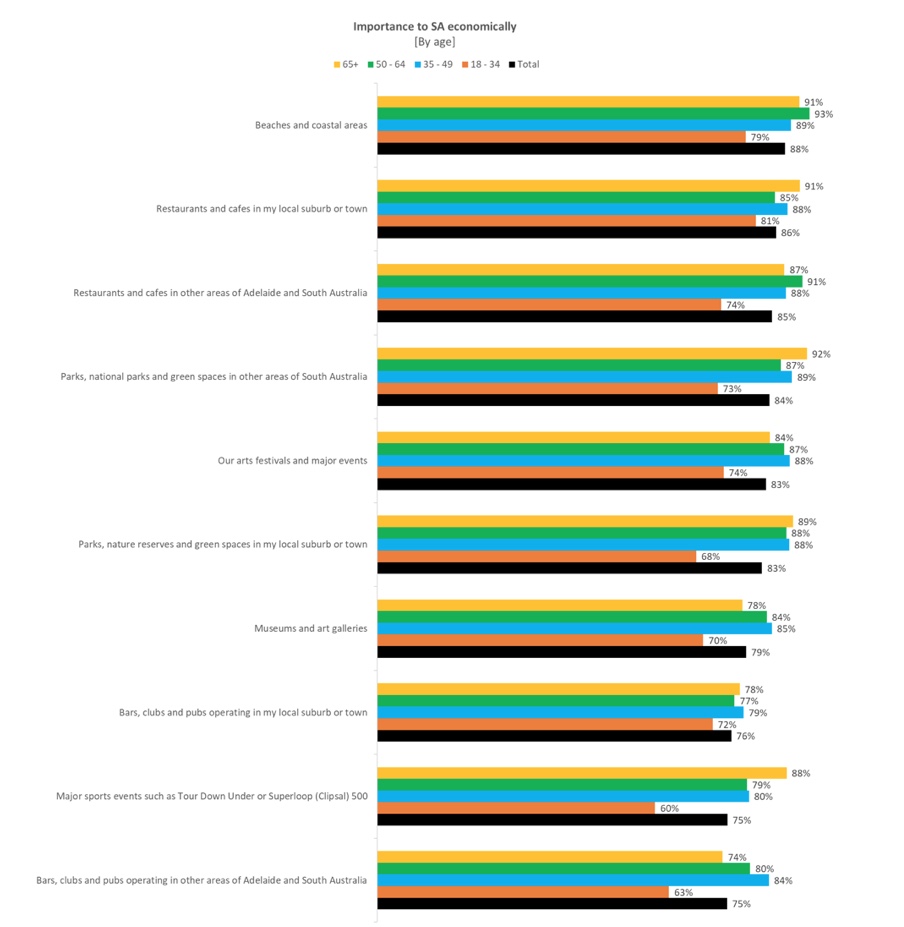
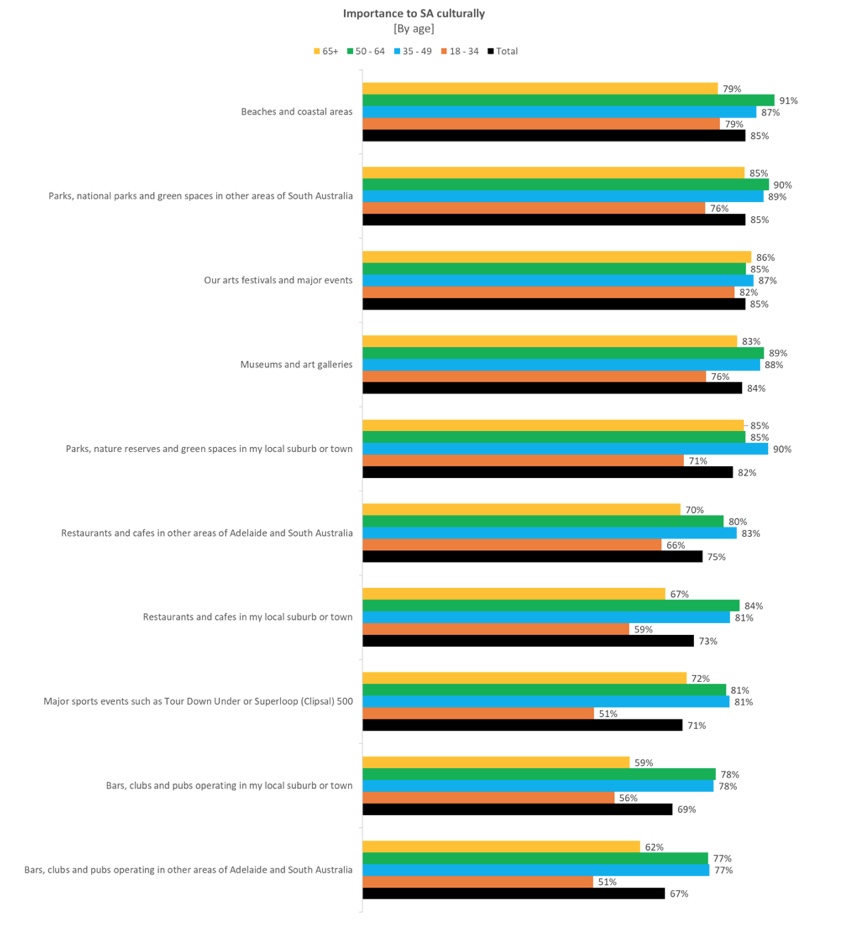
Economic and cultural impact is the key measure used by government and other stakeholders to value the contribution of our arts, sport and other festivals and major events.
Typically, this is weighted towards additional economic value through spending to the festival and wider economy from interstate and overseas visitors, that would not have been otherwise generated.
From survey and other data, an overall economic impact figure is calculated and festivals then need to beat this figure the next year to continue being supported.
With travel restrictions in place, this growth will be less likely for the foreseeable future, which opens up an opportunity to rethink South Australia’s expectations on our cultural aspects.
“Perhaps a longer-term bipartisan strategy focused on doubling down on our cultural aspects as a path to building South Australia’s appeal as a place to live, work and visit is a better way of looking at it,” Dunstone said.
“As a place to attract the best and brightest to live and work. To continue to attract tourists to our cultural assets.”
Dunstone said South Australia’s relatively small and diffuse population and geographic isolation have historically been major impediments to cultural and economic growth, but 2020 is the year when everything changed globally.
“Work from home will likely never fully revert to work from office. More and more companies are allowing their teams to work from anywhere, and many are choosing to do so from Adelaide and wider South Australia based on our enviable lifestyle and unique cultural benefits,” Dunstone said.
“It is likely time to rethink the economic value of our enviable lifestyle and cultural aspects.
“Rather than viewing the positive cultural aspects of South Australia as needing to generate return and growth, a greater strategic commitment to growing our unique cultural assets is likely prudent as a medium to longer-term path to sustained economic impact.”




